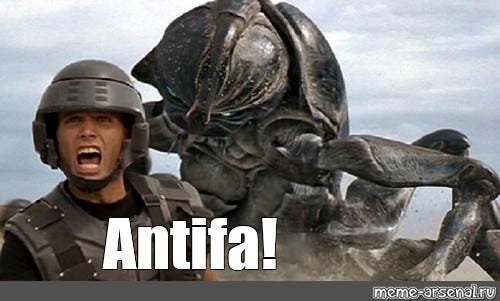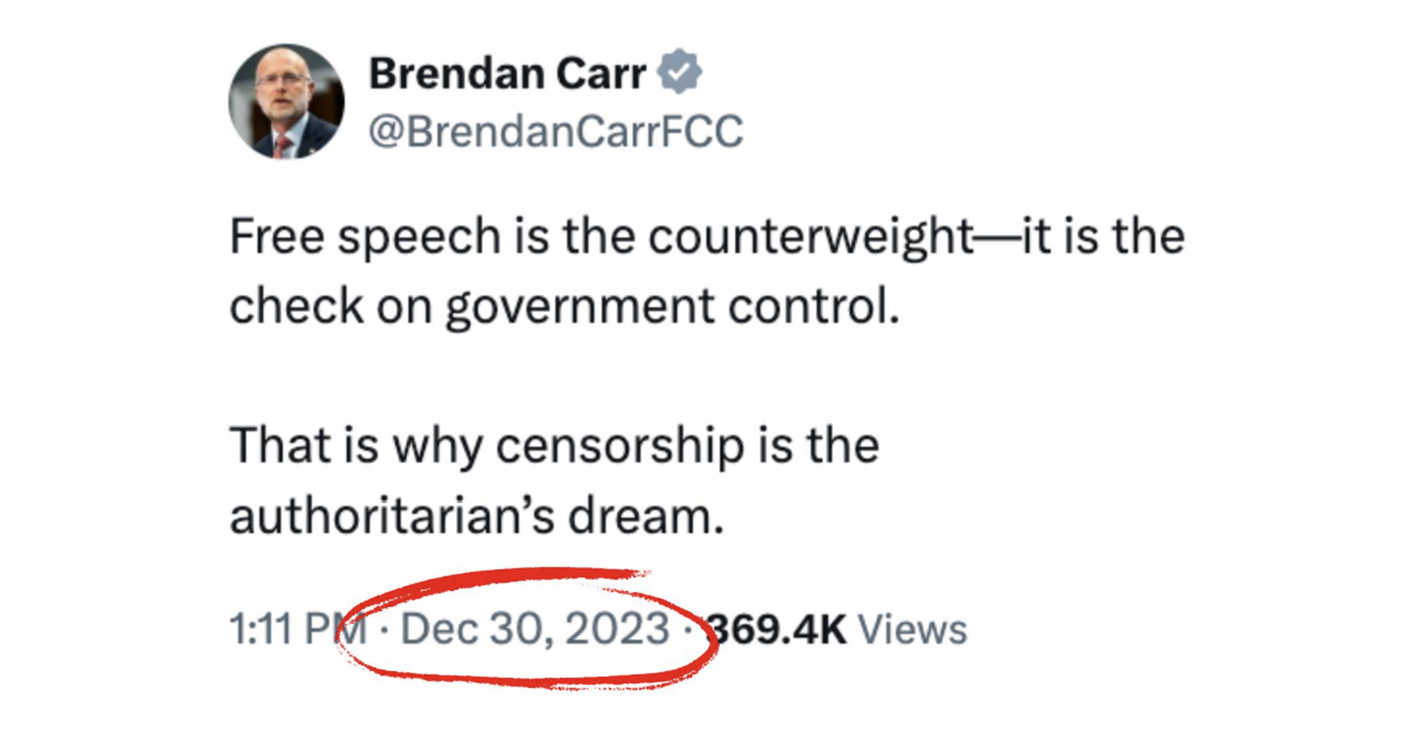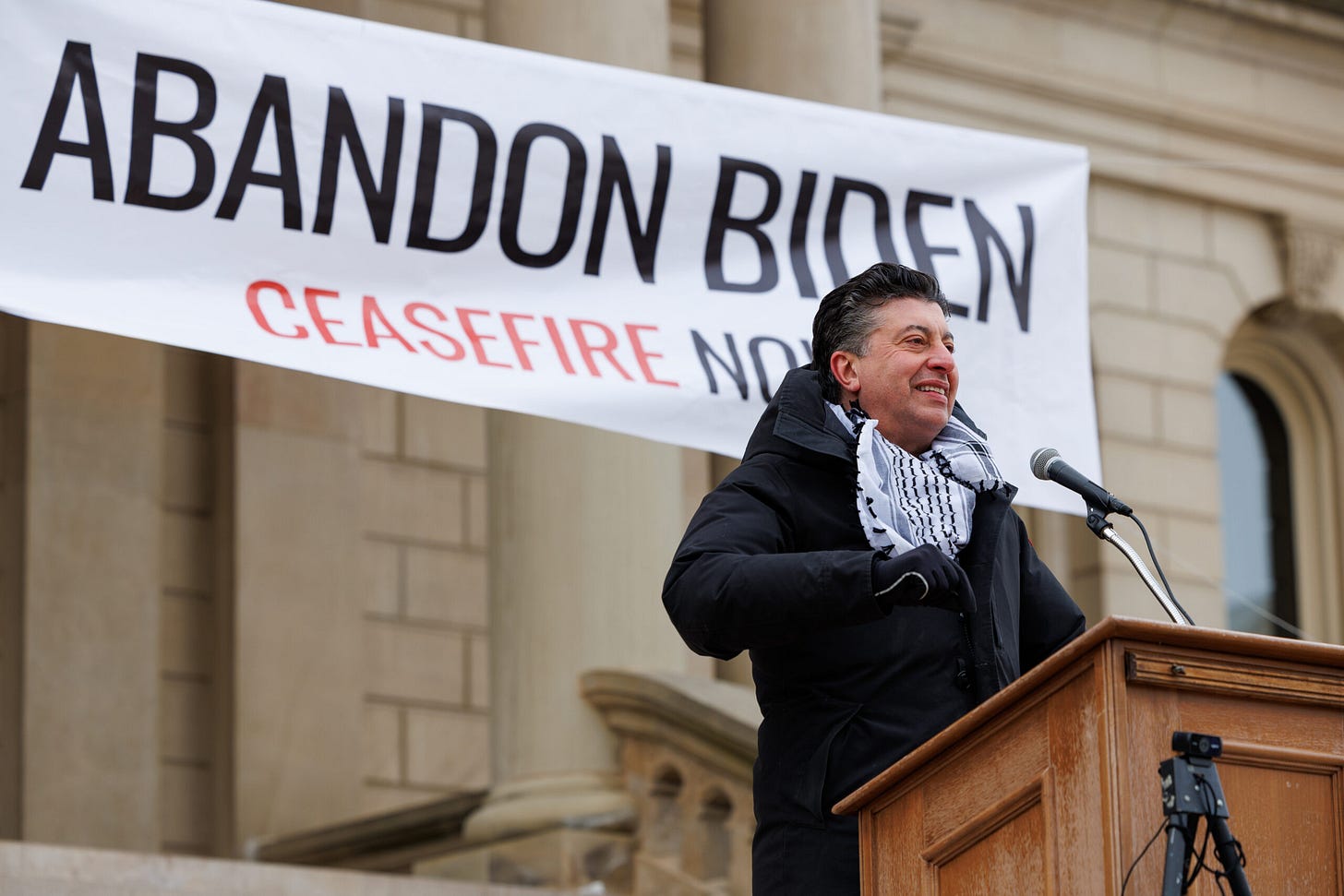Do not depend on the hope of results. When you are doing the sort of work you have taken on… you may have to meet the fact that your work will be apparently worthless and achieve no result at all, if not perhaps results opposite to what you expect. As you get used to this idea, you start more and more to concentrate not on the results but on the value, the rightness, the truth of the work itself.
- Thomas Merton
1.
We are living in a strange moment of radical uncertainty.
It is entirely possible that the United States will descend into Orwellian nationalist authoritarianism, with unwinnable elections and a media environment permeated by falsehoods. Then again, it’s possible that the Trump bubble might pop (some say it is already popping) and we could return to the before-times within a few years.
It’s also entirely possible that AGI will arise within the next few years, changing all of civilization — or that will AI merely cause some economic shifts but not be that big of deal. It’s also possible that global climate disruption will become an existential risk to civilization — or that it will be merely very bad, and possibly solvable by geoengineering.
People have strong opinions about all of these questions, but there’s no agreement as to what the future really holds. Nor do we know how the horrors in Gaza, Ukraine, and elsewhere in the world will resolve, or whether we’ll ever learn the truth about Donald Trump’s participation in a pedophiliac sex ring. We don’t even know the factors that will likely determine any of these things.
And that means we don’t know if anything we are doing will matter.
Sure, there are voices telling us to keep hope alive; to persist, resist, and insist on a better world. I appreciate all of that. But some days, I admit, it feels like nothing we are doing is making a difference. For God’s sake, this year’s elections are again mostly about kitchen-table economic issues, as if, I don’t know, defending the American constitutional order is irrelevant. Meanwhile life goes on normally for many of us, even as our institutions crumble around us. Once again, we are these guys:

2.
In 1966, the young Catholic peace activist Jim Forest wrote an anguished letter to the famous monk, theologian, and religious progressive Thomas Merton. Forest, who had co-founded the Catholic Peace Fellowship, wrote that with the Vietnam War still raging, “I am in a rather bleak mood.” He was set to write yet another essay about the injustice of the war, but wondered if anyone was listening. Meanwhile, he wrote,
murder goes on without interruption. This appalls me to such a degree that I get weary writing it down. Bomb after bomb after bomb slides away from the bomb bays. For every sentence in this letter, a dozen innocents will have died today in Vietnam. The end of the war is beyond imagination.
Obviously, this might sound familiar.
The entire correspondence is worth reading: though Forest died in 2022, his and his wife’s website has his full letter to Merton, and Merton’s full reply online. Merton responded first by noting that Forest was likely exhausted and in need of rest, and next by making the point above: that the value of justice work, whatever it is, must be in the rightness of the work itself, rather than its success at stopping injustice. Merton also confessed that he agreed with Forest: “You are fed up with words, and I don’t blame you. I am nauseated by them sometimes. I am also, to tell the truth, nauseated with ideals and with causes.” Then, prophetically, he wrote:
This country is SICK, man. It is one of the sickest things that has happened. People are fed on myths, they are stuffed up to the eyes with illusions. They CAN’T think straight. They have a modicum of good will, and some of them have a whole lot of it, but with the mental bombardment everybody lives under, it is just not possible to see straight, no matter where you are looking.
In a way, I find this comforting: very smart people felt this way even in 1966. Then again, I wonder what Thomas Merton would write if he saw us today, when our “mental bombardment” is beyond anything he could have imagined. Is it comforting that people have always felt their society to be “sick,” or have we in fact just grown sicker and sicker? It does seem true that for several thousand years, the worst people have often held the most power -- perhaps more often than not. So perhaps this moment is the norm rather than the aberration from the norm.
I find myself going back and forth about Merton’s letter. At first, I wrote an entire version of this post praising it. It gives me enormous comfort. Merton is saying something similar to the Buddhist teaching that one must act without attachment to results: one still must act, even though it’s quite possible they’ll have no results at all. This is similar to the Jewish teaching, attributed to Rabbi Tarfon in Ethics of the Fathers 2:16, that it is not incumbent upon you to finish the work, but neither are you free to desist from it.
This is largely where I end up most days. Sometimes, I still have hope that my writing is playing a tiny part in a larger discourse that will ultimately help restore this country to sanity. I saw that happen in the first Trump administration: I felt hopeless at times then, too, and that my work at The Daily Beast (where I was writing twice a week on Trump, the Supreme Court, and related issues) was merely preaching to the choir. But then, in 2020, the choir showed up at the polls and voted that guy out of office. I read Eric Swalwell talking about a Truth & Reconciliation style period after the Trump regime ends, or Rebecca Solnit reminding us that Trump is actually quite weak and we shouldn’t give him our fear, or a dozen pundits proclaiming that the restoration of Jimmy Kimmel is a sign that Trump’s grip is loosening, and I think, well maybe they’re right.
Sometimes, though, I’m not so hopeful.
I’ve gamed out the 2026 election myself and I still don’t see enough evidence that it will be a fair one. I hear Trump’s insanely incendiary rhetoric at the Charlie Kirk memorial — all the while decrying incendiary rhetoric — and I wonder what might be left of consensus reality. I read the executive order cracking down on “Antifa,” which is not an organization that exists, and I wonder what George Orwell would think.
Meanwhile, Larry Ellison — newly-minted media mogul, new owner of Paramount and CBS, new bidder for Warner Bros. Discovery (which owns CNN and HBO) — is also set to be a new part-owner of American TikTok. This is the same Larry Ellison who recently said “Citizens will be on their best behavior because we’re constantly recording and reporting everything that is going on.” What could go wrong?
Even in the narrower context of the Jimmy Kimmel story, the FCC’s Brendan Carr says he will continue to go after Wrongspeech, Trump says he will “test out ABC,” and CBS News is about to become the next Fox News. Incidentally, here’s Carr just a couple of years ago:
So, there are plenty of justifications for non-hope. And I think it’s at least worth contemplating the possibility that things will not get better.
At those times, Merton’s words are like a spiritual life-raft. Ultimately, the meaning of our political actions must reside in the rightness of the actions themselves. We may lose these battles, but we’ve searched our souls and listened to our consciences, and this is what we believe to be true, and that gives us solace, whether we believe there is a God in heaven or not. Some days I hope that my essays are messages in a server-farm bottle, sent to the future from the last years of the present era. Some of us knew what was happening, I want to say, I’m sorry we couldn’t stop it. I’m not even sure we did our best. A lot of the spiritual practice of caring about both spirituality and politics is about humility, oscillation, and not-knowing, and Merton’s words ring true.
3.
But, I thought right before hitting “publish” on this piece, doesn’t Merton’s point of view lead to actions which may be more performative than transformative?
After all, it could be said that despite this prolific public output and engagement with the civil rights and antiwar movements, Merton himself leaned toward the spirituality side of the spirituality/activism dyad; after all, he was a monk. So it could be self-justifying for him to say that it is the goodness of the work, rather than its effectiveness, that matters. And anyway, couldn’t such a philosophy lead to an un-pragmatic and ineffectual politics of purity, as we see in some corners of the Left today? Doesn’t it lead to supporting causes and candidates who have no chance of winning, over imperfect ones who might? Have we not learned from 2000 (when in some states, Nader’s vote count was greater than George W. Bush’s margin of victory), 2016 (when angry ‘Bernie Bros’ refused to vote for Hillary Clinton), and 2024?
This is not a question distant from Merton himself. Only two years after he wrote that letter to Jim Forest, progressives backed Eugene McCarthy and Bobby Kennedy in the 1968 Democratic primary and never embraced the establishment nominee, Hubert Humphrey. Richard Nixon ended up winning the election.
But it’s not only voting. It’s boycotts (which sometimes work and sometimes don’t), protests that sometimes speak only to the left and not to the center, individual actions to reduce one’s carbon footprint but not collective actions to enact changes that would actually make a difference — it’s a whole way of being. Many times, reflecting on feel-good actions that don’t actually move the needle, I’ve thought of this Onion article from September 2001:
Somewhere in here is a line, I suppose, between ineffectual actions that may still have moral value and actions that can actually make things worse. But I don’t know what that line is. Thoreau in Civil Disobedience argues that even to vote in a corrupt system is to be complicit in that system’s oppression of others (slavery, in his case). Many Israeli Palestinians agree, refusing to vote in Israeli elections. And maybe they are right politically as well as morally — after all, in Merton’s case, despite the results of the 1968 election, the Vietnam War did eventually end, and America learned certain hard lessons about the limits of its power. (Our mistakes today are different ones.)
For me personally, the ‘Both/And’ synthesis has to do with using one set of tools to ascertain which interventions can be effective, and a different set of tools to assess the spiritual and emotional worth of those actions.
For assessing interventions, I turn to boring, left-brain tools of political science, neo-pragmatist Rortian philosophy, and data-driven analysis. I vote for imperfect candidates, I don’t fret much about personal carbon emissions, and I will continue beating the drum about the Epstein Files because data shows that a ton of Americans really care about it.
Of course, I don’t think it’s possible to really know what interventions lead most predictably to the best results. But we all have our unique contributions to make, and I think mine are in the work I’m doing now: both the short-term journalism on politics and religion, and the longer-term scholarship on psychedelics and religion. It’s a bit that well-trodden pseudo-Ikigai Venn diagram of finding the intersection of what you love, what the world needs, what you get paid for, and what you’re good at. There’s a lot in there that’s problematic, but much that’s useful.
But later at night, when I’m wondering if any of this stuff matters, I find comfort in Merton’s (and the Buddha’s, and Rabbi Tarfon’s) wisdom. Merton created enduring works of contemplative wisdom and prophetic justice that have outlived him. Despite being a Trappist monk and theologian, he was engaged in the intellectual and political issues of his day, chiefly the civil rights movement. He spoke to the times and to the timeless in ways that have long been a role model for me. And informed in some amount by his contributions, the inscrutable dialectic of human history plodded onward, in ways that were neither catastrophic nor entirely for the best.
That is how I understand hope.
Things I’ve been reading this week on this platform:
Two excellent
investigations this week: one on Sinclair Broadcasting’s role in the Kimmel scandal (including a great survey of their track record overall) and the Larry Ellison/TikTok piece mentioned above.I generally loathe Lists Of Wise Things I Want To Say, but
wrote a truly beautiful and insightful list of ‘45 Things I learned by age 45.’ Read this.- hit a home run with this call-out to members of the “consciousness community” for their political apathy and inaction.
If you believe something democratic will happen after Trump, Jordan Weissman at
lays out an excellent agenda for what we should do when that happens.
Finally, here is some excellent advice from George Harrison, by way of Marianne Faithfull:







Thanks Jay. It may not matter in this cosmic sense but what you’re saying speaks to what many of us are feeling, and that counts for something.
"Nothing that is worth doing can be achieved in our lifetime; therefore we must be saved by hope. Nothing which is true or beautiful or good makes complete sense in any immediate context of history; therefore we must be saved by faith. Nothing we do, however virtuous, can be accomplished alone; therefore we must be saved by love. No virtuous act is quite as virtuous from the standpoint of our friend or foe as it is from our standpoint. Therefore we must be saved by the final form of love which is forgiveness." Niebuhr